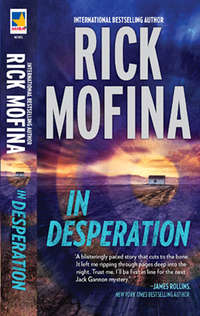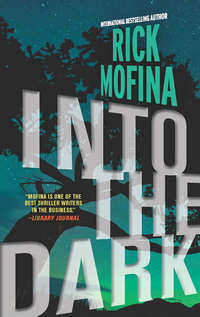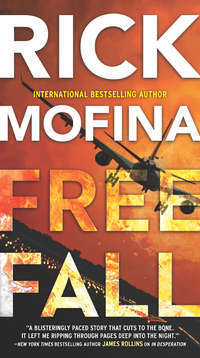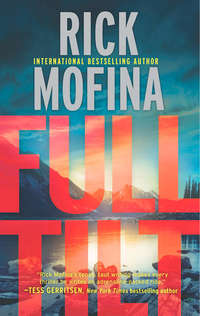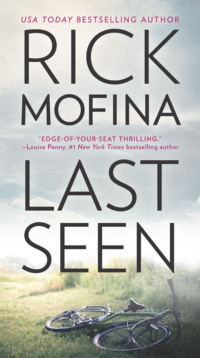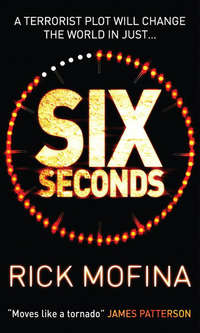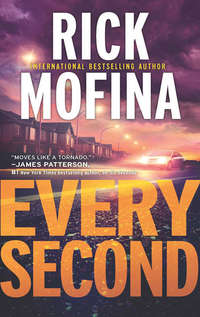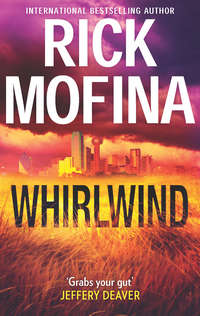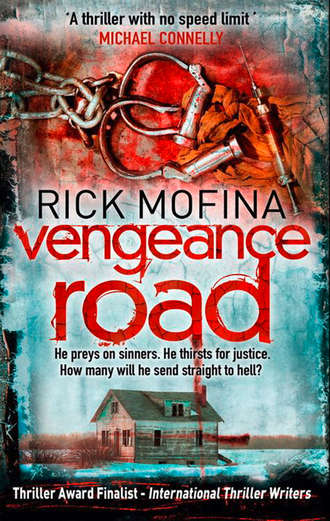
Полная версия
Vengeance Road
At one point, Adell Clark sent him a text message.
FYI: Crime scene should be released by tonight.
Could be something for later, he thought as he entered Kupinski’s Diner. Stan Kupinski, a former navy cook, ran a twenty-four-hour greasy spoon off Niagara that was a favorite of blue-collar workers and street types.
The smells of frying bacon and coffee greeted Gannon as he slid into a vinyl booth. He took stock of the checkered floor, the chrome stools at the worn counter with take-out containers towering to the ceiling.
He ordered a club sandwich and in no time at all Kupinski tapped a bell with his spatula, then left a heaping plate of food at the pick-up window. Lotta, the ample waitress—regulars called her Whole Lotta—set Gannon’s food before him. He invited her to sit at his booth and talk about the murder. Since she needed to take a load off, she agreed.
“As a matter of fact, darlin', I did hear things about that little girl, Bernice,” Lotta said. “I heard she and some other girl got into a little spat the last night anyone saw her.”
Gannon’s eyebrows climbed and he got out his notebook.
“Any idea what they fought about?”
“Maybe leaving, or something,” Lotta said then stole a fry.
“Did you tell the police?”
“Police didn’t come in here asking, like you.”
“You know who the other girl is?”
Lotta’s earrings swung when she shook her head.
“I can ask around,” she said.
“Thanks—” Gannon put a five-dollar tip in Lotta’s hand “—because I’d like to find her.”
It was getting late but Gannon would try one more thing.
Experience from working on investigative stories had taught him that you should always keep tabs on your subject. It could yield a break, he thought as he headed to Ascension Park and Karl Styebeck’s street.
Styebeck’s house was a well-kept colonial with a two-car garage. It sat far back from the street, deep into the lot as if isolated within the neighborhood.
Gannon parked several doors away and watched it from his rearview mirror as he considered the story.
Why did the police consider Styebeck a suspect behind closed doors while not confirming it publicly? Where was the pressure to discredit his story coming from?
Was this the home of a monster?
Hold on.
The garage door was lifting as Karl Styebeck got into one of the two cars a dark sedan alone, then drove out.
Gannon started his Vibe’s engine and followed him from a distance.
14
After leaving his house, Karl Styebeck waited at a traffic light, determined to fight his way out of this crisis.
Everything was on the line.
Jack Gannon’s story in that morning’s Sentinel had exploded in his home, claiming his wife and son as collateral damage.
Alice had buried her face in her hands
“Oh my God, Karl! This can’t be happening!”
Taylor, his twelve-year-old son, was scared. “Why is Mom crying, Dad?”
Styebeck struggled to explain the story.
“It’s wrong,” he’d told them. “This guy, Gannon, screwed up. I’m helping with the investigation. His information is dead wrong. I’m going to straighten this out, okay?”
That seemed good enough for Taylor, who worshipped his dad. Still, Alice kept him home from school, and later she pulled Styebeck aside.
“Is this story true?” She glared at him. “We’ve had strange phone calls the last few weeks. You’ve been on edge and moody lately, tossing in your sleep. You tell me right now if you had anything to do with this girl’s murder! You tell me, Karl!”
What could he say?
He stood before his wife, trying not to remember what he was and what he had come from.
“I swear to you, I did not kill that woman.”
Alice’s eyes searched his for a trace of deception until she was satisfied there was none.
As the hours passed, her fears were somewhat mitigated by the steady flow of friends calling and e-mailing their support, especially the volunteers with Styebeck’s charity and outreach groups.
And the fact that the state police challenged the accuracy of Gannon’s story at a news conference that morning had helped. Styebeck’s lieutenant got behind him after calling to say, “Somebody got their wires crossed. Hang in there, Karl.”
The police union offered legal help, which he declined. It wasn’t needed. He’d booked off several days of saved vacation.
He’d take care of this himself. His way.
Night had fallen now as he cut across the city to his destination in the Delaware district. It was one of Buffalo’s most prestigious communities, an area of mansions built in the late 1800s and early 1900s.
He went to the side door of a grand Victorian home and rang the bell. The door was opened by Nate Fowler.
“Thank you for seeing me privately, Nate.”
“Certainly, please come in. Right this way.” Fowler led him to a room with floor-to-ceiling bookcases, a fireplace and a grandfather clock. “Can I get you a coffee or anything?”
“No, thank you, this won’t take long.”
“I want to assure you that nothing you say leaves this room.”
“As I mentioned in my call this morning, your reporter, Gannon, ambushed me. I tried to reach you before the story ran.”
“I was traveling. It was unfortunate for both of us. My apologies.”
“This story has hurt me and my family, Nate.”
“I understand, given your outstanding reputation.”
“As you know, I have confidential informants on the street. Rumors get started and make their way into investigations. Things get misconstrued, things get leaked and fiction becomes fact. The truth is, I’m assisting the state police with the Hogan homicide. I can understand how a reporter trying to find a good story could get carried away.”
“It happens, yes.”
“I want you to know I had nothing to do with the homicide. It’s ridiculous.”
“Today the New York State Police publicly disputed our report on you. And given the circumstances under which our story made it into print, I think a full retraction and apology is necessary.”
“Thank you.”
“Additionally, we’ll find the source of this injurious information. I trust that would be useful to you?”
Relief spread across Styebeck’s face.
“That would be helpful.”
“You don’t deserve this, Karl. You’re a hero in the eyes of this community. A great number of people admire you. I enjoy the charity work we do together and want to maintain our relationship.”
As Styebeck stood to leave, his attention went to the woman who’d entered the room.
“Karl, this is my wife, Madeline, with the State Attorney General’s Office.”
“Yes, we’ve met at functions.” Styebeck shook her hand.
“Maddy,” Fowler said, “I was just telling Karl how I value our relationship.”
“He thinks the world of you, Detective.” She smiled. “Did he tell you he’s willing to underscore that point at your fund-raiser this week?”
“No. That would be appreciated.”
“In fact—” Fowler put his hand on Styebeck’s shoulder as they walked to the door “—and this is confidential, please. But I’m considering a run for public office and would like to know that I can count on your support.”
“I see …” Styebeck hesitated. “I don’t really get involved in politics.”
“I understand completely, Karl,” Fowler said. “Not asking you to do or say anything. Just think about it. Besides, I’m taking steps to ensure this unfortunate matter will blow over.”
“I need for that to happen.”
“Now,” Fowler said, “I know it seems the obvious move for me would be to fire Jack Gannon.”
“I didn’t want to raise that, or my legal options, here.”
“Right. Just so you’re aware, I can’t fire him. Gannon’s Pulitzer caliber, one of my best reporters. I almost lost him once. And while he’s a zealous crusader, the fallout at the paper if I terminated him now would cause me too much grief with the news guild, just as we’re positioning to sell the paper. That’s confidential.”
“Of course.”
“I’ve pulled Gannon off this story and suspended him. One wrong move on his part and he’s gone. That should keep him out of your business. How’s that sound, Karl?”
“That sound’s fine, Nate.”
The men shook hands at the door then Styebeck got into his car.
Unseen, in the park across the street, Jack Gannon watched Styebeck leave Nate Fowler’s house.
15
Gannon couldn’t believe this.
Why was Karl Styebeck visiting Nate Fowler?
He doubted they were discussing their charity work.
Gannon walked from the park to his car then roamed the city, chewing on what he’d just witnessed, wondering where, or if, it fit with the latest aspects of the story. There was the mystery truck, the argument Bernice Hogan had had with another woman before she vanished, and the state police discrediting his reporting on Styebeck.
And now Styebeck pays Fowler a late-night visit.
Piece by piece a picture was emerging. Something large was percolating beneath the surface, but he didn’t know what it was.
Was a cop suspected of murder being protected?
All right, better let things simmer, he told himself as he got to Cheektowaga, one of Buffalo’s first suburbs. He lived in Cleveland Hill, a working-and middle-class neighborhood of proud, flag-on-the-porch homes built after the Second World War.
Mostly Polish-American families lived here, going back two and three generations. But he hadn’t gone very far either. He’d grown up on the fringes of Cleveland Hill, near the Heights, a rougher district.
Buffalo was his home. A place he loved.
It was also his prison, he thought as he pulled into a parking space at the building where he lived, a tired-looking apartment complex built in the 1960s. He grabbed his bag, got his mail and took the elevator to the sixteenth floor.
His building had more good tenants than bad. There were a few noisy neighbors and a few creeps. And sometimes the halls were heavy with the smells of exotic cooking. But generally people left him alone.
He liked that.
His apartment had a large, sweeping view. The wind often charged off Lake Erie and rattled his windows, but it was warm in the winter.
He sat on his couch and sorted through his mail. There were mostly bills, then a letter from Ron Cook, an old reporter friend, who’d quit his job at the Detroit Free Press to teach English in Addis Ababa.
“Buddy, here’s an application if you’re looking for a career change and an escape from the snow!”
Gannon pondered the idea for a moment, but he had too much going on here to give it serious consideration.
No, thanks, Ron.
Then he came to a letter from the lawyer handling his parents’ estate, reminding him that the anniversary was coming up for payment on the unit where he’d stored their belongings. Did he want to pay for another year, or did he have other plans for his family’s property?
He’d deal with that later.
He tossed the letters on his coffee table, opened his bag, and had started reading the file Mary Peller had given him on her missing daughter when his cell phone rang.
“Gannon.”
“It’s Fowler. We’ve got a substantial retraction going in tomorrow’s edition. In thirty minutes we start rolling it off the presses.”
“You didn’t call to tell me that.”
“Give me your source and I’ll kill the retraction.”
Gannon said nothing. Now more than ever he didn’t trust his managing editor.
“Jack, give me your source and we can all have our lives back.”
“Does Bernice Hogan get her life back? Why does Styebeck get a free ride?”
“The police have publicly pissed on your story and the Sentinel today. You were wrong. We have to swallow that and move on.”
“I was not wrong. And I can’t give up my source.”
“Think about what you’re risking. Your job is hanging by a thread, Gannon. You’ve got about twenty-nine minutes to think it over.”
Gannon didn’t call.
He took a hot shower, dressed and got into his car.
Freeway traffic was light as he glided along Interstate 90.
He left the interstate and got on Genesee. As he headed into the heart of the city, Buffalo’s skyline rose before him: the HSBC Center, the Rand Building and City Hall.
He found himself at the Sentinel’s loading docks, an area bordered by a chain-link fence that trapped stray papers and flyers. The air smelled of newsprint and exhaust as trucks and vans performed a marshaling ballet in and out of the ten bays, laden with damp copies of the first edition.
He was watching an act in the swan song of the newspaper industry, an industry in which he’d invested everything.
But he was not giving up.
He parked and went to the gate. Holding up a dollar bill, he flagged down a van departing for its route.
“Sell me a copy?”
The driver had a scar on his cheek. He snatched Gannon’s buck then reached to his passenger seat, grunted and handed him a fresh copy of the Buffalo Sentinel.
The retraction was there on the front page, framed in a shaded box with a different font. He scanned, “Sentinel offers its apology …”
“Uncorroborated information …”
“Erroneous reporting …”
“Taken action …”
“Suspended …” The words landed like punches until he heard a clank down the street at a row of newspaper boxes.
A carrier was loading a box for the Buffalo News. Gannon went over and bought a paper. The News had clobbered him with their front-page coverage, giving him his comeuppance in a column under the headline:
The Pulitzer Finalist Who Got It Wrong
The item pontificated about the journalistic failing of rushing to be first at the expense of getting it right. Gannon lowered the papers, like flags of defeat.
What happened?
Less than twenty-four hours ago he owned the news in this town. Now his world was collapsing.
He nearly vanished in the dust that swirled around him as the delivery trucks thundered by. A cold wind kicked up from Lake Erie and he retreated to his car and drove away, traveling back through his life.
Being a reporter was all he’d ever wanted to be.
He was a blue-collar kid. His mother worked long hours as a waitress, while his father worked hard shifts in a factory on the lakeshore that made rope. Both of them were newspaper readers, a trait they’d passed on to him.
Enthralled by life’s daily dramas, he read the Buffalo Evening News and the Buffalo Courier-Express. And when the Courier-Express folded, he read the Sentinel, which rose from its ashes.
And he dreamed about seeing his own stories in print.
When his parents worked late, his big sister, Cora, would take him to the library and get him books by Jack London, Stephen Crane and Ernest Hemingway.
“This is what a future reporter should be reading, Jackie,” she’d said.
Cora was five years older than him and nurtured his dream. She convinced their parents to buy him a secondhand computer and encouraged him to write. They were as close as any brother and sister could be. But their age difference would have a bearing on their relationship and eventually Cora grew apart from him and her family.
She changed.
It hit him the night police brought her home after she’d got drunk with friends who’d stolen a car. She’d grown into a different person, one who argued constantly with Mom and Dad. So many nights were filled with screaming, slamming doors, heart-breaking silence and tears. Cora started taking drugs, which led to more arguments until the day she ran away.
All she’d left was a note saying she could no longer stand living under “their fascist rules.”
She was seventeen.
Friends told his parents Cora had gone to California with an older guy who was a heroin addict. When his father got an address, he flew to San Francisco and looked for Cora.
It was all in vain.
They never saw her again.
They hired private detectives, flew to cities when they had tips. It was futile. He ached for her to come home.
Then his anguish turned to anger for what Cora had done. Later, there were times he’d search for her on online databases. He even asked police friends to do whatever they could.
Not much came of it.
Cora was out of their lives.
Or dead.
Accept it and leave the past in the past, he’d always told himself.
Miles and time swept by as he searched the night for answers.
He drove through older neighborhoods; the best and the worst of Buffalo. Here were the abandoned factories, the shut-up mills and forgotten stores, reaching from the wasteland of the rust belt like a death grasp. And here were the new bohemian communities that resurrected historic, near-dead buildings and revived the never-say-die attitude of Buffalo.
After Cora left, he’d worked brutal summer shifts on assembly lines in Buffalo factories to put himself through college because his parents had spent nearly all they had looking for her.
When he found time, he reported for the campus paper, and freelanced articles to the Sentinel and the News.
All the while, he yearned to escape Buffalo for New York City and a job with a big news outlet. After he graduated from college, he worked at small weeklies then landed an internship with the Buffalo Sentinel. Impressed by his determination, the paper gave him a full-time reporting job.
The Sentinel would be his stepping stone out of Buffalo.
Then, while dispatched to cover a shooting in Ohio, he’d met Lisa Newsome, a reporter with the Cleveland Plain Dealer. She was a sharp-witted, brilliant writer. He remembered the way her hair curtained over her eye when she wrote the stories she’d cared about.
She told him that she’d fallen for his edgy charm and “that Matt Damon thing you got going in the looks department.” She wanted him to move to Cleveland and work at the Plain Dealer, or she’d offered to move to Buffalo because she yearned to have kids and settle down.
He didn’t, so they broke it off and Gannon threw all he had into his reporting.
Two years back, his talent was tested when a charter jet en route to Moscow from Chicago plunged into Lake Erie a quarter mile off Buffalo’s shoreline. Some two hundred people died.
While the world press speculated that the cause was terrorism, Gannon found a Russian-speaking man in the Sentinel‘s mail room. They worked the phones and the Internet, locating the pilot’s brother who was living in St. Petersburg, Russia. Turned out the brother had received the last e-mail the pilot had sent but refused to share it. “Think of the dead, their families deserve to know the answer. Think of the dead, their ghosts will haunt you,” Gannon and the Russian-speaking Sentinel worker kept telling the brother before convincing him to give them the final e-mail. It detailed the pilot’s plan to commit suicide by crashing his jet because his wife had left him for a woman.
The story was picked up around the world.
It led to Gannon’s Pulitzer nomination. He didn’t win the prize, but he got a job offer in New York City with the World Press Alliance, the global wire service.
His dream had come true.
Then fate intervened.
About a week after the offer came, his mother and father were driving to see an old friend about another tip they’d had about Cora’s location. Even though she’d be close to forty years old, Gannon’s mother and father refused to give up searching for her.
“She may have children, we have a right to find her,” his mother said.
They never made it. A construction worker who’d spent the afternoon in a bar slammed into their car.
They both died instantly.
Gannon blamed Cora.
It was a horrible time.
Gannon was in no shape to do anything and declined the New York offer. Why didn’t he leave afterward? Maybe he stuck around to be closer to the memory of his parents. Maybe he thought Cora would miraculously appear. Even now, he didn’t know. It didn’t matter. In the end, the New York job never materialized.
So where did he go from here?
He eased his Pontiac Vibe to a stop at the edge of a park alongside Ellicott Creek. As the Vibe’s engine ticked, he sat behind the wheel staring into the night.
Everything he was, everything he dreamed of, was on the line.
In his heart he knew he was not wrong on his reporting of Detective Karl Styebeck’s link to Bernice Hogan’s murder. Call it fate, destiny or a cosmic force, but something had guided him to that meeting-room door that day at Clarence Barracks and pointed to Styebeck.
But all he had left were more unanswered questions about the case.
There was only one thing he could do now.
He reached to the floor behind the passenger seat for his lantern flashlight. It had a new six-volt battery and an intense-focus beam. The light was strong.
He left his car and headed for the woods. If he was going to search for more answers, the shallow grave where they’d found Bernice Hogan’s corpse was the place to start.
16
Jolene Peller’s body swayed rhythmically to the low drumming of big wheels rolling at high speed.
As she floated in and out of consciousness, she tried to seize upon a way to claw out of the darkness.
She needed to think. Think of what she knew.
Her prison—or tomb—whatever it was, was still moving.
She knew she’d been abducted.
But who had done this? And why?
Someone had bound her hands, gagged her and imprisoned her. She had muzzy memories—or was it a dream?—of someone removing her gag, feeding her bread, chocolate bars, giving her water. Giving her a plastic bucket for a toilet, ordering her to relieve herself. There was tissue, but her hands remained bound with tape.
Mercifully the bucket had a lid.
Then she was forced to swallow capsules.
Drugs?
Someone was keeping her alive.
Like a captured animal.
Who? Who was doing this and what was he going to do to her?
Or had he already done something to her while she was unconscious?
The image made her retch. She swallowed. Please no. Jolene pushed back her tears.
Please.
What did he do to Bernice?
Jolene had no concept of where she was, or how long she’d been here. She was wearing the same clothes she’d worn when she tried to help Bernice.
She wanted to shower, to cleanse herself of this foul, stinking nightmare.
She knew by the steady drone that she was still moving. Maybe this was her chance to do something.
But what?
She was gagged. Her hands were bound, but not her legs or ankles. She was free to move, but she was blind in the absolute darkness. Maybe her abductor was watching her now with some sort of high-tech equipment? Maybe if he saw that she was awake he’d come to her?
To do what?
Jolene’s breathing quickened.
She was so scared. She whispered a prayer.
Stay calm.
Using her fingertips, she felt in her pockets for her cell phone. It was gone.
Take it easy.
She steeled herself then probed the soft pad. Feeling its indentations, quilting and seams, she concluded that it was a mattress.
Single-size.
Pushed against a wall.
Jolene drew herself into a sitting position. She was woozy. She waited and breathed slowly. Then she ran her fingers over the walls. They were solid wood with a rough pitted surface. At times, she felt the steel hardware of a hinge-and-bolt assembly. Felt the line of a door frame. But it was shut up so tight, no light, or hope, leaked through. At times she felt the head of a nail or screw protruding from the wall.


